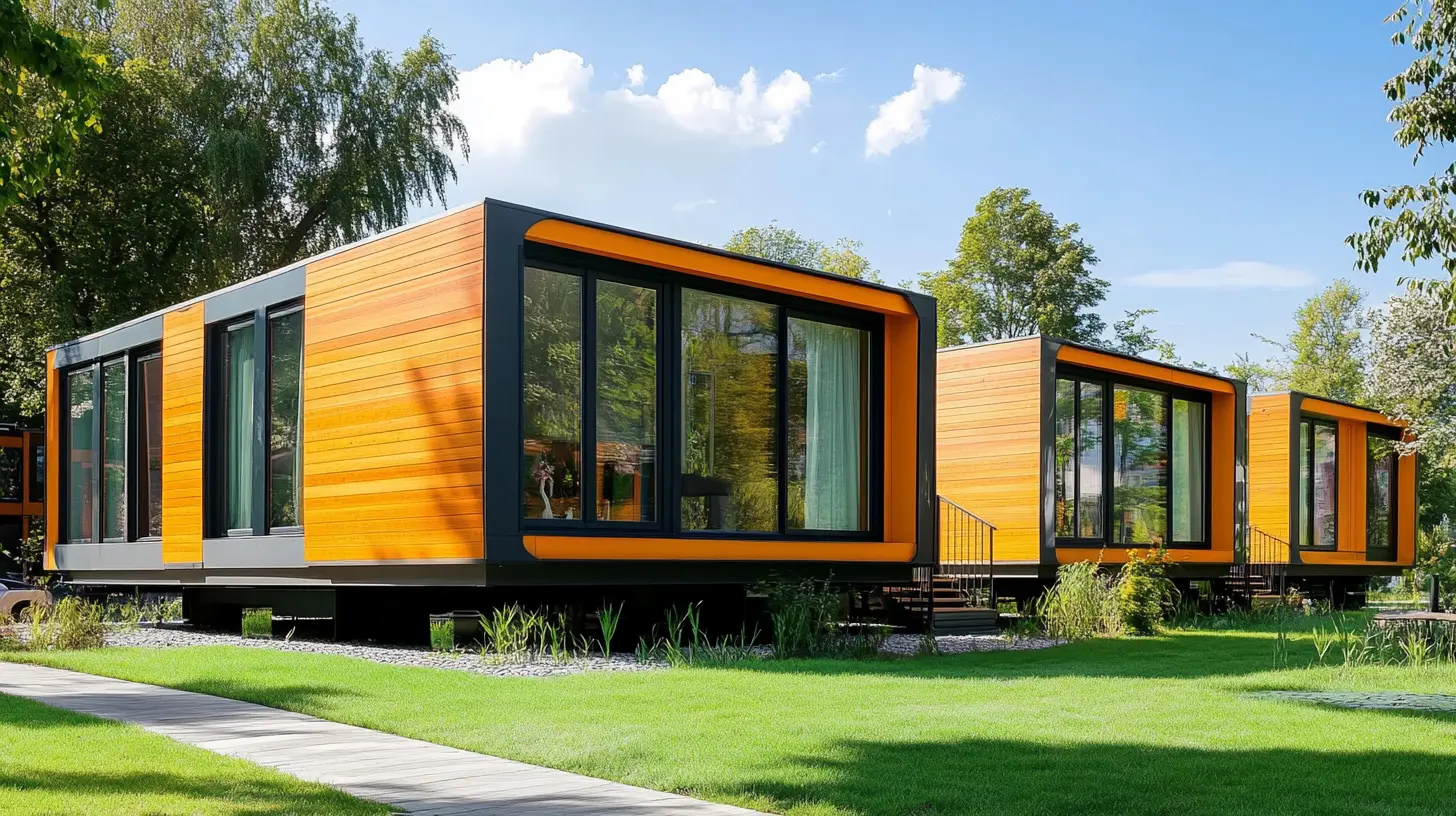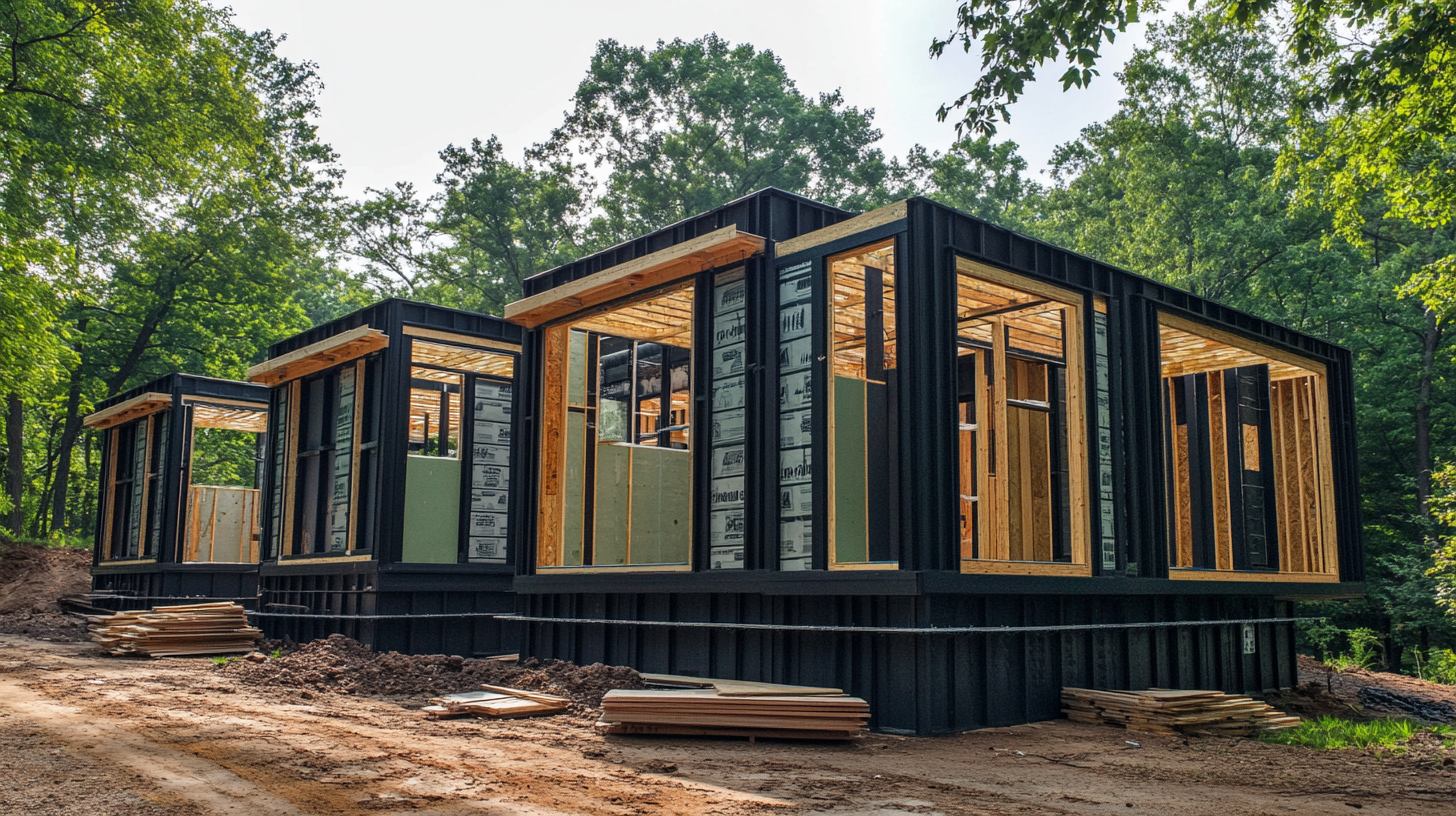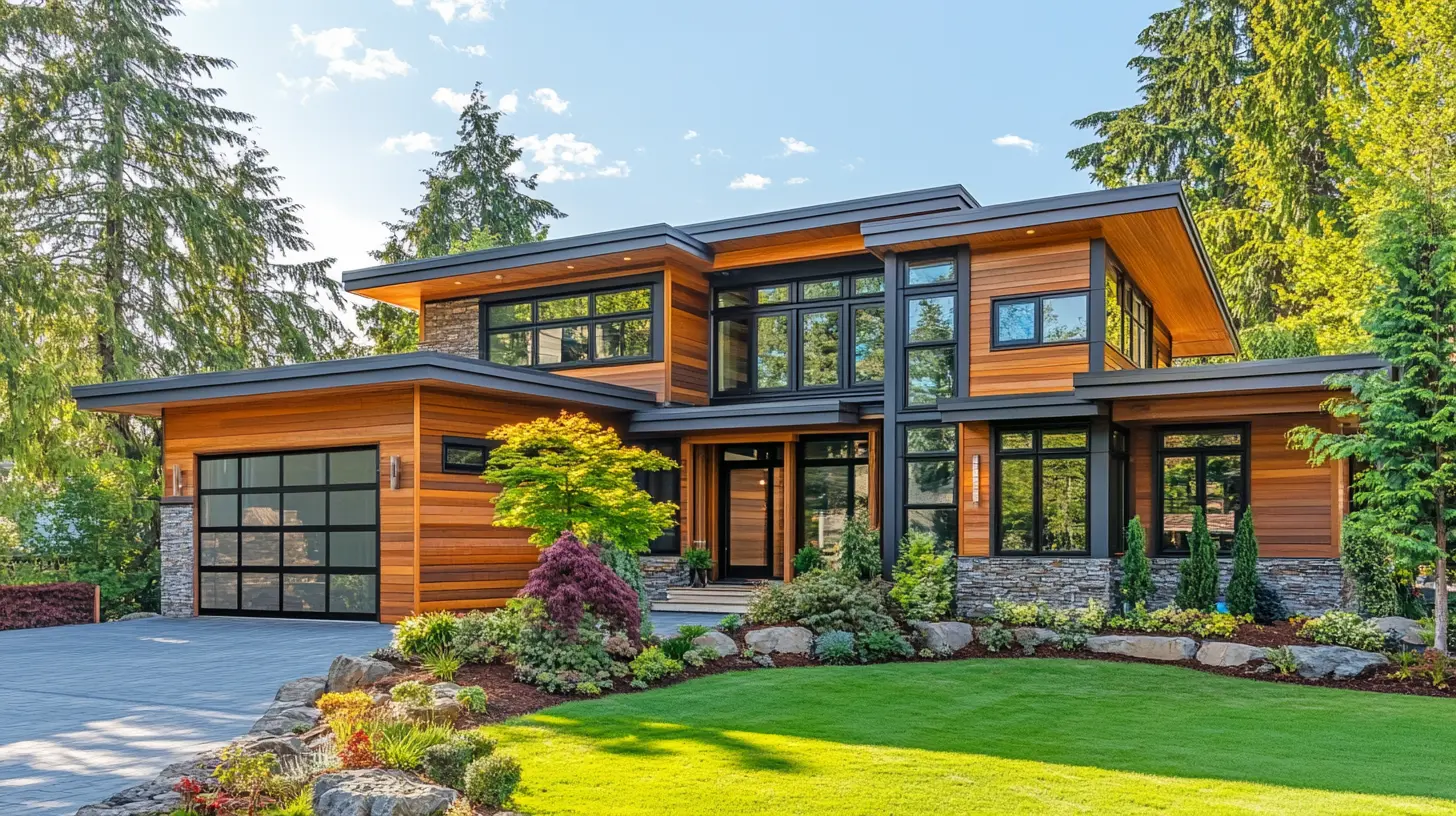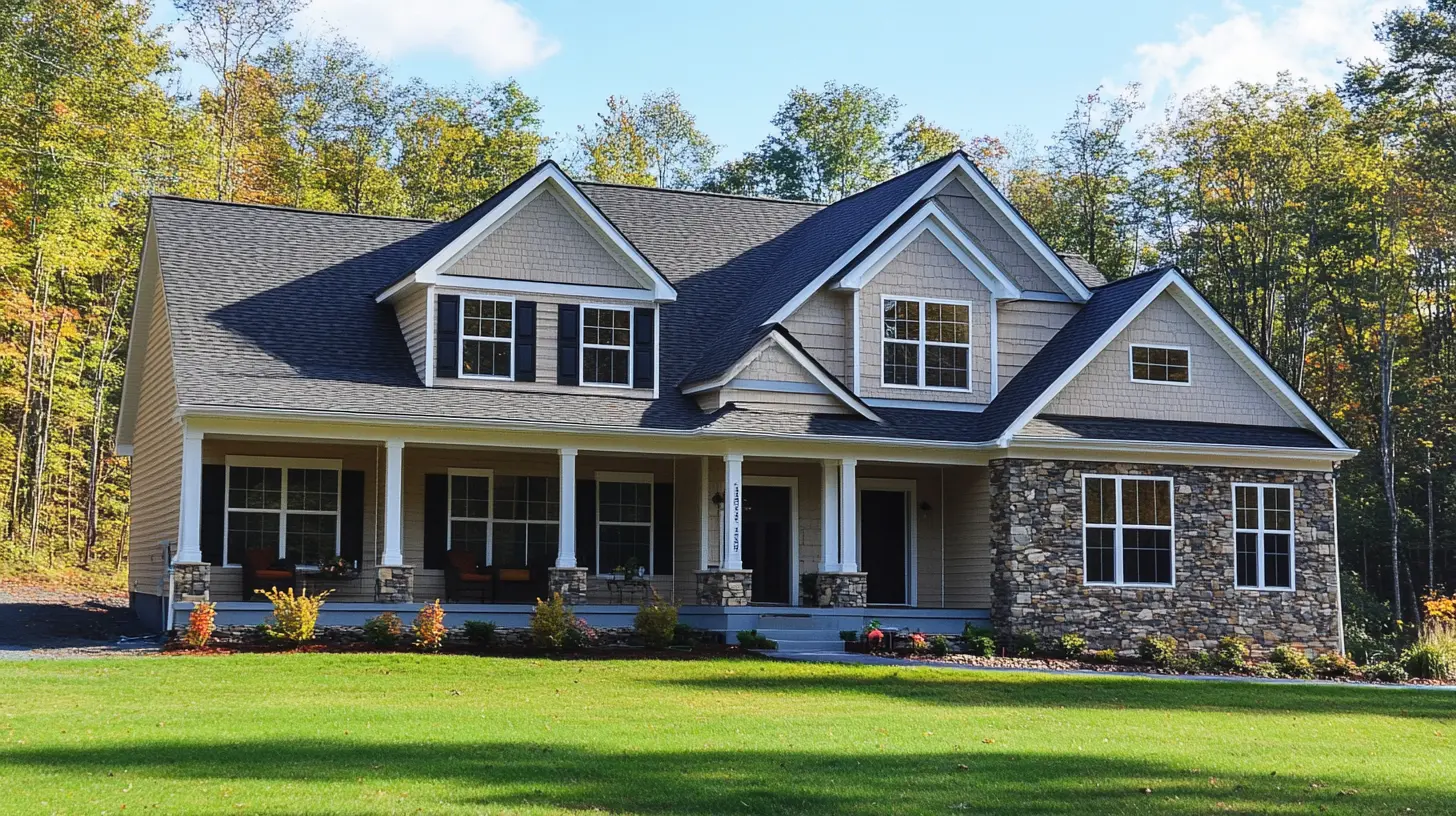Leave Your Message
- Phone
- E-mail
- Whatsapp
- Inquiry
During the last few decades, Modular Homes have emerged as among the really useful and flexible housing solutions as far as people's various living requirements in modern times are concerned. With growing technology and advancements in designs, modular houses serve their function with a defined aesthetic appeal, which encourages residents to live increasingly sustainable ways. This will help identify the core specifications of modular homes with the highlighting of the seven essential features which prospective homebuyers must consider before looking into this innovative way of living.
CMER of X-Capsule takes care of a wide variety of modular products from vacation guest houses, home office pods, space capsules, multifunctional expansion boxes, courtyard storage rooms, and mobile shops. Modular design can truly be used in almost every field. As you go along this guide, you will understand how these essentials are more than just features in making modular homes habitable but are also essential elements in redefining contemporary living spaces.

Increasingly more people are opting for modern living with modular homes because of their innovative design and construction. Modular homes are homes that are constructed in sections or modules in the factory, then transported to the permanent site for assembly. This process not only speeds up the construction but also allows homeowners a great potential for customization. With knowledge of the various aspects of modular homes, one can be equipped to make an informed decision that meets their needs and wants. Among the unique features of modular homes is versatility. Customers can select from a comprehensive range of floor plans and designs, allowing for personalized arrangements that fit individual lifestyles. Modular construction allows for various sustainable building practices, limiting environmental impacts through the use of certain materials. For the eco-minded buying public, this concern with sustainability counts for a lot when considering energy-efficient housing options. Another factor that is truly important is the speed of construction. Modular home construction takes a portion of time within which traditional building methods are completed because the processes work in synchrony at both the factory and site. Time is saved with this efficiency as well as savings on labor costs, making modular homes attractive to buyers with tight budgets. Understanding these factors will help break down the myths about modular homes showing that they have immense potential for being an alternative workable solution to the housing needs of the future.

There are key distinctions in the various construction methods used to build homes. One of the major attributes of modular construction is, without a doubt, the incredible efficiency associated with it. Unlike on-site building, the modular construction builds homes in a factory environment, observing adequate time schedules and thereby reducing construction time. Due to this reduced construction time, homeowners become used to the idea of occupying modular homes with little delay compared to other conventional homes.
Another superior attribute is the very inexpensive price of modular construction. With less time spent at the site and reduced labor costs, modular homes remain cheaper without compromising on quality. Besides, factory-built homes can accumulate large discounts through bulk purchases of materials. Affordability is not the enemy of quality; modular homes conform to strict standards that often exceed local building codes.
Finally, modular construction can stay green. Many manufacturers today use eco-friendly materials and practices that minimize waste during the construction process. In a factory environment, it is possible to carry out energy efficiency measures with much greater precision in their integration into the design so that when modular homes are delivered, they will help in minimizing carbon footprint not only during construction but in efficient operation after.
In a growing environmentally conscious world, owning a modular home is a fashionable and responsible choice that can satisfy one financially and ecologically.

Material selection for modular home building must emphasize durability and energy efficiency and maintain a high degree of performance quality. According to the Modular Building Institute, modular construction uses up to 40% less material than conventional building methods, thereby contributing to the savings and lowering waste. The prefabrication type of construction ensures better accuracy in cutting and overall efficiency because there is less excess to begin with.
Structural components represent one considerable category of materials used in modular homes. Engineered lumber, for instance, goes beyond traditional solid timber in strength and is thus ideal for beams, headers, and joists. Demand for LVL and other engineered wood products has increased dramatically, and based on analysis by Grand View Research, the global engineered wood products market is anticipated to reach 63 billion dollars by 2025.
Besides structure, energy-insulated materials complete the package of sustainability goals. For example, spray foam and rigid foam boards are considered high performance because they may further reduce energy consumption. As the Department of Energy suggests, insulation plays the most vital role in ensuring savings in heating and cooling by supporting up to 20% for a homeowner, thus confirming the importance of energy efficiency.
Eventually, finishes and fixtures also play a role in the overall performance and services of any modular home. More sustainable floor, cabinet, and countertop materials combined with low-VOC paints and finishes can contribute to enhanced indoor air quality and the overall environmental health of the home. With growing interest from buyers in green options, these decisions in materials for modular construction will develop along paths that serve both aesthetic and functional benefits.

Among others, certain features deem modular home design most admired, such as adaptability and workable layout to suit different lifestyles and tastes. Customization reaches into maximizing space for functionality, whether it is for families changing all the time or that one particular family member conscious about comfort versus minimalist comforts.
To this end, sustainable material use must be on another keynote. Modular homes often utilize eco-friendly tend-to-grain materials that are both easy on the eyes and contribute to healthier home interiors. This slowly seems to reflect a trend toward including principles from such styles as Japandi, which marry minimalist modes with functionality. The simplicity and clean form of modular home design, along with simplicity in Japandi, gives both a sense of peace and practicality.
Further, energy efficiency is also brought into focus when considering modular home designs. Most designs employ high energy-consuming and utility-bill-cutting technologies. High-quality insulation and energy-saving cooking, lighting, and appliances are now standard features that attract environmentally conscious housing consumers. With a strong emphasis on sustainability and chic aesthetics, modular homes have been elevated into a potential housing alternative and lifestyle choice for many.
Modular homes are really gaining more attention because of what they can do in today's energy efficiency. These kinds of houses stand out among present-day homes. Modular homes are constructed in such an advanced method that insulation and energy-saving technologies are taken into consideration and allow being fancy in such a way that they remain high on energy performance, like having the right placements of windows in terms of getting natural light and ventilation.
Innovations-and those pertaining to modular home constructions- point to the environmental aspects of this Danish concept. For instance, the coming standard designs that would be available in Canada will seek to counter the crises as far as housing is concerned-in the sense that it would ultimately reduce waste at the time of construction whilst improving energy efficiency. In such pilot module composite construction areas such as Guangzhou, the quality of producing homes would be seen as efficient as actually producing cars, thus giving such an appearance of speed and sustainability to the building.
Such purchase of energy-efficient appliances along with their utilization of renewable energies such as sunlight through solar panels, significantly decreases their carbon footprints. This energy efficiency goes hand in hand with the global moves to make sustainable living spaces, thus making them an ideal choice for future homeowners who are going to save energy costs and let's face it, “energy costs green” positively instead of negatively. Modularity in houses can be the future house type because it allows independent function all through making modernity only flexible.
It is modular houses bringing into lots of features for practicality and different things that an owner can do themselves. The most basic form of that personalization is how they're going to have their home modulozed which caters to all choices that a homeowner has – from layout changes to material selections.
One of the most important aspects of personalization is to choose types of architectural styles or finishes you have. For example, you might want to go for the modern aesthetic, while someone else may want to have a more traditional feel. On top of that, many manufacturers provide features that are energy-wise, and therefore sustainable building materials are incorporated and smart home technology, making it more comfortable and eco-friendly at the same time.
Due to various innovative methods of modular construction, it is increasingly easier for home owners to just assemble their dream homes. A recent development in modular housing proves that companies duplicate the mass production almost entirely operable with automotive manufacturing: construction speed is reduced without sacrificing quality and even the costs are cut. Capacity for pre-approved designs and specifications, especially in locations such as Canada, has made them more available: anyone can now go about building their own unique spaces in a fraction of the time that traditional construction may take.
Though it might seem quite complicated, one can attempt to understand some vital points that would ease the navigation of the financing process concerning modular homes. Modular homes are those homes built in sections in a factory and transported to the construction site for erection, and much to the unfortunate confusion, many think modular means mobile homes. On the contrary, they are meant to be permanent structures, with the appreciation of value possible. For buyers, specialized lenders that understand modular home loans would be highly recommended, for conventional mortgages might not fit every case.
Very similar to conventional houses, another important aspect in the financing of modular homes is the judgment of the borrower's creditworthiness. Lenders really do consider credit score, income stability, and debt-to-income ratio for the modular home loans. Many modular home buyers have found that better interest and terms are available with higher credit scores, so preparing financially before exploring the modular home market is essential. All prospective buyers should also consider the other costs involved, from land and site preparation to utility installation, including these costs, which can vary greatly in amount depending on the area.
Another interesting point is probably that, possibly, the cost of energy-efficient upgrades will be able to be worked into the financing. Recognition of the need for environmentally sustainable living continues to grow, and green building options for many modular homes can lead to energy cost savings over time. Thus, this amendment is considered to be additional comfort and affordability in the long run. Definitely, the pathway to this success needs knowledgeable financial advisors who would empower you with information and tools to navigate your modular home financing.
Various pivotal features on the characteristics inclined towards the latest trends in sustainability, which are of paramount importance in all such deliberations. Given that the manufacturer's experience and reputation matter most, it would be ideal to look for builders working in this field for a longer time, building well-reputed and quality modular homes that are energy-efficient and customizable. Such homes are thus never quite built without putting the client's needs into some consideration, and in your case, this would ensure you get not only a home that is well made but also one that follows all your unique specifications.
Moreover, get to learn about the manufacturer when it comes to sustainable practices. With people's shift to higher levels of self-sufficiency and independence, it's wise to seek manufacturers that use eco-friendly materials and energy-efficient systems in their home designs. This will lower your carbon imprint and help in reducing energy bills in the long run. Then check the warranties and quality assurances offered by the manufacturer-you want to see warranties that reflect their confidence in their construction processes.
Lastly, the manufacturer's customer service and support should always be taken into account throughout the process of building your new home. An accessible builder or manufacturer who provides clarity at all stages-from design consultation to post-construction support-can delight a client. A conscientious manufacturer will accompany you through the intricate details of modular home specifications, keeping you thoroughly informed and confident at every step.
Key features include adaptability, functional layouts, customization options, and the use of sustainable materials that appeal to various lifestyles.
Modular homes often use eco-friendly materials, enhance aesthetic appeal, and create healthier living environments, aligning with trends like Japandi design that focuses on minimalism and functionality.
Modular homes are designed with advanced construction methods, high-quality insulation, energy-efficient appliances, and smart designs that optimize natural light and ventilation.
Innovations aim to reduce waste during construction, enhance energy efficiency, and produce homes efficiently, contributing to sustainability and addressing housing crises.
Consider the manufacturer’s experience, reputation, commitment to sustainable practices, energy-efficient technologies, and the availability of warranties and quality assurances.
Good customer service is crucial; a responsive and transparent builder will guide you through the entire building process and address your concerns, ensuring a positive home-buying experience.
Yes, many modular homes come equipped with energy-efficient appliances and renewable energy sources like solar panels, which can lower utility bills and reduce a homeowner's carbon footprint.
Absolutely! Modular homes can be customized to maximize space efficiently and meet the unique preferences of families or individuals seeking comfort and practicality.
Modular homes are constructed more efficiently, similar to manufacturing processes, leading to reduced construction time and waste compared to traditional building methods.
Modern technologies in modular homes enhance energy efficiency, reduce energy consumption, and help create sustainable living environments through smart design and materials.

